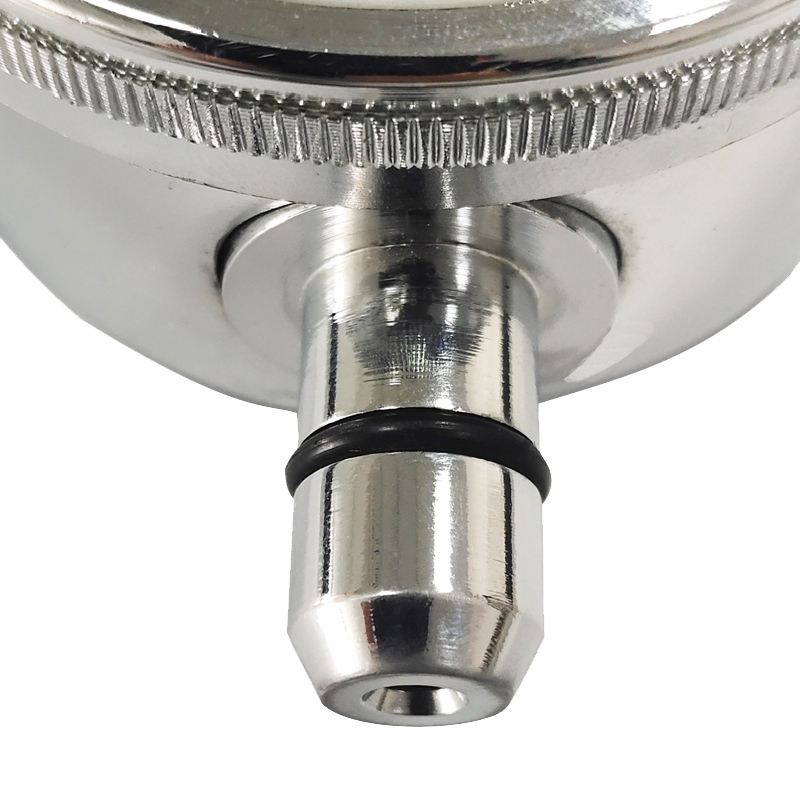
Dec . 01, 2024 17:30 Back to list
diaphragm sealed pressure gauges service
Understanding Diaphragm-Sealed Pressure Gauges Applications and Advantages
Diaphragm-sealed pressure gauges are specialized instruments designed to measure the pressure of fluids and gases while protecting sensitive components from harsh operating environments. These gauges incorporate a diaphragm—a flexible membrane that separates the measuring medium from the gauge mechanism. This design allows for accurate pressure readings in a variety of industrial applications.
What is a Diaphragm-Sealed Pressure Gauge?
A diaphragm-sealed pressure gauge consists of a metallic or elastomeric diaphragm housed within a protective casing. When pressure is applied to the gauge, the diaphragm deflects. This movement is translated into an accurate pressure reading using mechanical linkages and dial indicators or electronic sensors. The sealing mechanism prevents the measuring fluid from contacting the internal parts of the gauge, thus enhancing durability and reliability.
Key Applications
Diaphragm-sealed pressure gauges are used across diverse industries, including
1. Chemical and Petrochemical Industries These gauges are essential for monitoring pressure in processes involving corrosive fluids and gases. The diaphragm's sealing capability protects the gauge's internal workings from chemical attack.
2. Food and Beverage In the food and beverage industry, hygienic measurement is crucial. Diaphragm-sealed gauges can be designed to meet stringent sanitary standards, ensuring that pressure readings are both accurate and compliant with safety regulations.
3. Pharmaceuticals Similar to food processing, the pharmaceutical industry requires sterile environments. Diaphragm-sealed pressure gauges help maintain pressure integrity without contamination.
4. Water and Wastewater Treatment Measuring and monitoring pressure in treatment plants is critical for operational efficiency. Diaphragm-sealed gauges can withstand the abrasive nature of sludge and chemicals used in the treatment processes.
Advantages of Diaphragm-Sealed Pressure Gauges
diaphragm sealed pressure gauges service

1. Protection Against Contamination The primary advantage of diaphragm-sealed gauges is their ability to prevent contact between the process media and the gauge mechanism. This feature is vital in applications where the fluid may be corrosive, viscous, or contain particulates.
2. Accurate Measurements The diaphragm's ability to flex ensures precise pressure readings, even under fluctuating conditions. This accuracy is crucial for maintaining process control and ensuring product quality.
3. Extended Service Life With their robust construction and protective features, diaphragm-sealed gauges generally have a longer service life compared to traditional gauges. They are less susceptible to wear and tear from aggressive media.
4. Flexible Material Choices Diaphragms can be made from various materials, including stainless steel, Inconel, and Teflon, allowing for customization based on the specific requirements of the application.
5. Compact Design The design of diaphragm-sealed gauges can be more compact than traditional gauges, making them easier to install in space-restricted environments.
Considerations for Selection
When selecting a diaphragm-sealed pressure gauge, several factors should be considered
- Material Compatibility Ensure that the diaphragm and wetted parts are compatible with the process fluid to prevent premature failure. - Pressure Range Choose a gauge that is suitable for the expected pressure range to ensure accuracy and longevity.
- Temperature Variability Consider the operating temperature range, as extreme temperatures can affect gauge performance.
- Calibration and Maintenance Regular calibration and maintenance are necessary to ensure ongoing accuracy. Some designs offer easy access for cleaning and servicing.
Conclusion
Diaphragm-sealed pressure gauges are vital tools in various industries where protecting sensitive gauge components from harsh processes is necessary. Their ability to deliver accurate measurements, combined with their durability and versatility, makes them an excellent choice for applications ranging from chemical processing to food production. By understanding their advantages and selecting the right specifications, operators can ensure reliable and efficient pressure measurement in their systems.
-
High-Precision 5 Valve Manifold Differential Pressure Gauge Suppliers
NewsApr.29,2025
-
High-Precision Diaphragm Vacuum Pressure Gauges Manufacturers & Quotes
NewsApr.29,2025
-
Omega Differential Pressure Gauges High Accuracy & Durability
NewsApr.28,2025
-
Low Pressure Differential Pressure Gauges Precision Solutions & Quotes
NewsApr.28,2025
-
Digital Diaphragm Pressure Gaauge Precision Measurement & OEM Quotes
NewsApr.28,2025
-
Differential Pressure Gauge China Price High-Accuracy & Best Quotes
NewsApr.28,2025
